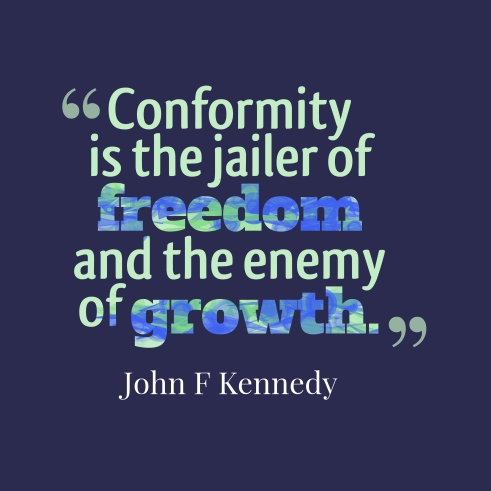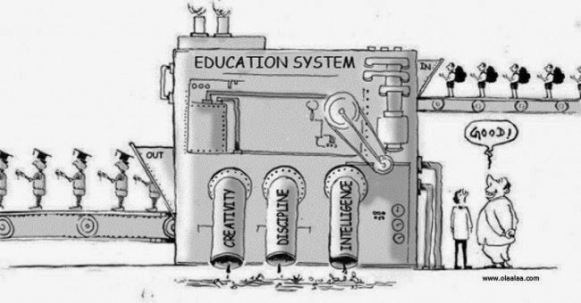
TheBreakaway | BreakawayConciousness
Zy Marquiez
May 19, 2017
Wide in scope, and methodical in its examination, The Vanishing American Adult by Ben Sasse is not only a dire warning, but a call to action for those who are seeing the decline of modern adults and the transmutation and erosion of adulthood in modern times, and the erosions of Freedoms as well.
Examining a veritable panoply of issues, the author centers upon myriad issues in modern schooling such as age segregation, over-consumption, lack of knowledge or literary skills, and also the incomplete view on what Freedom really is and all that it entails, and more.
Speaking about the glaring disrespect for Freedom and all that it took the gain, the author incisively notes:
“Greg Lukianoff, president of the Foundation for Individual Rights in Education, has created the tragically apt phrase “unlearning liberty” for the troubling turn from freedom of expression and academic freedom toward political correctness and speech codes on our elite campuses.
“Let’s state it clearly: This is nearly the opposite of hat American Revolution as fought for. America declared independence from Great Britain in pursuit of liberty, not “safe spaces.” Freedom, and particularly freedom of discourse and debate about the big ideas of life, death, and meaning, is the foundation of the American idea. Fleeting notions of psychological safety from having to considering competing ideas are quite nearly the opposite.”[1]
Such is what takes place when people are raised wrapped in bubble wrap, and are only allowed to experience a fraction of the totality that the world holds. Worse, these actions are antithetical to Freedom since they aim to castrate others of the very views Freedom aims to protect, even if they are unpopular.
At one point, the author centers upon the work of award-winning teacher, John Taylor Gatto, who has done yeomen’s work in sounding the alarm regarding the insidious nature of public schooling. In his landmark book, Dumbing Us Down, the author notes that:
“…seven lessons are universally taught from Harlem to Hollywood,” in our cookie-cutter schools. The main consequences for students are: emotional confusion, social class disparity indifference, passivity, intellectual dependency on experts, conditional self-esteem, and surveillance by those in charge.”[2]
In such a system that seeks to conform, Is it a wonder that many are merely shadows of what they are fully capable of?
That said, there are two contentions to note with the book. The first contention centers upon footnotes. Although the author has a bibliography, and does in fact does address why the footnotes are missing, it still leaves a lot to be desired. Given that this book aimed to cover a large scope of information, for those wanting to not only verify the information given, but wanting to research it further, footnotes are black pearls, they are essentially priceless. One can only construct the present out of the roadmap of the past, and without a roadmap, one is unable to know where to go. One would have to spend hours trying to stitch together the book’s sourced material in an attempt to ascertain which statement correlates with what book in the Bibliography, and there in you STILL don’t know what page that statement came from. Had he given the page in the bibliography this would have been alright, but such was not the case.
The second contention with the book is that although the author does note some of the incisive issues that are taking place within society, and rightly so, the author doesn’t go far enough and only does a cursory examination. One could make a sound argument that a large portion of issues stems from the social engineering in education, which is wholly verifiable if one takes the time to look. It’s certainly not the only reason, but a leading one.
In fact, the very work that the author cited of John Taylor Gatto, throughout his books shows at length many references for the system having been engineered this way. It wasn’t random that America’s education is failing, and that critical thinking skills have been lost – It was meant to BE that way. Gatto’s work is a crucial start to glean this. Moreover, the work of whistleblower Charlotte Iserbyt, who was a former Senior Policy Adviser for the Office Of Education Research & Improvement in the Reagan Administration adds more fuel to the fire, and sheds more light onto the darkness. Her intriguing book, The Deliberate Dumbing Down Of America, is a phenomenal foray into the insidious roots of this broken system.
Also noteworthy is a gentleman who came out pulling no punches on this very topic named Professor Patrick Deneen. In fact, in a lucid article entitled “How A Generation Lost Its Common Culture,” he states the following:
“We have fallen into the bad and unquestioned habit of thinking that our educational system is broken, but it is working on all cylinders. What our education system aims to produce is cultural amnesia, a wholesale lack of curiosity, history-less free agents, and educational goals composed of content-free process and unexamined buzz-words like “critical thinking,” “diversity,” “ways of knowing,” “social justice,” and “cultural competence.” Our education system produces solipsistic, self-contained selves whose only public commitment is an absence of commitment to public, a common culture, a shared history. They are perfectly hollowed vessels, receptive and obedient without any real obligations or devotions.”[3]
Such is the true nature of the beast. Not only is society being dumbed down, but culture as a whole is being eviscerated, one child at a time.
In any case, Sasse does provide some solutions to these problems and they are worthy of consideration. The solutions that the author offers are not only practical, but much-needed.
It would be prudent for those seeking to understand more thoroughly how all these issues came to be to not only read The vanishing American Adult but also to read up on the work of Gatto, Iserbyt, and Deneen. Complement this piece not only with the prior authors’ work, but also with Dr. Joseph P. Farrell’s and Gary Lawrence’s Rotten To The Common Core, and Gatto’s books called Weapons Of Mass Instruction, A Different Kind Of Teacher, The Underground History Of America, and John Holt’s How Children Learn, and one will begin to have a firm foundation upon which to grasp the totality an depth of this disturbing issue and even some possible solutions.
The myriad ramifications of this book abound, and should be ruminated upon at length. If the America of the future is to have a firm foundation, at present, action needs to take place, with an ironclad education at the vanguard. All individuals that value Freedom need to realize their fullest potential in mind, body and soul. The future that awaits seems rather bleak, and it will remain bleak as long as ignorance remains.
That is why being proactive should be a daily priority. Change starts with the individual – every single one of us. Don’t let anyone else tell you otherwise. For if we don’t take time to teach our children, kit and kin about the lessons of life, a great majority will arrive at life’s end having learned nothing.
__________________________________________
Footnotes:
[1] Ben Sasse, The Vanishing American Adult, p. 250.
[2] Ibid., p. 71.
[3] Professor Patrick Deneen, How A Generation Lost Its Common Culture
___________________________________________________________
This article is free and open source. All individuals are encouraged to share this content and have permission to republish this article under a Creative Commons license with attribution to Zy Marquiez and TheBreakaway.wordpress.com.
___________________________________________________________
About The Author:
Zy Marquiez is an avid book reviewer, researcher, an open-minded skeptic, yogi, humanitarian, and freelance writer who studies and mirrors regularly subjects like Consciousness, Education, Creativity, The Individual, Ancient History & Ancient Civilizations, Forbidden Archaeology, Big Pharma, Alternative Health, Space, Geoengineering, Social Engineering, Propaganda, and much more.
His other blog, BreakawayConsciousnessBlog.wordpress.com features mainly his personal work, while TheBreakaway.wordpress.com serves as a media portal which mirrors vital information nigh always ignored by mainstream press, but still highly crucial to our individual understanding of various facets of the world.







